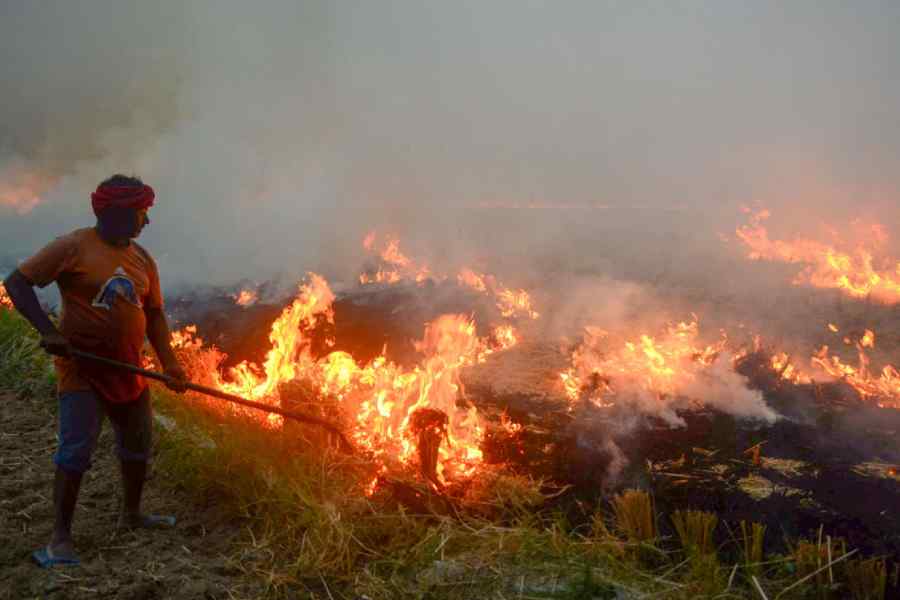It is that time of the year again — farm fires stretching across large swathes of northern India have led to a deterioration in the air quality of the National Capital Region. The capital has expectedly borne the brunt of the poisoning, with doctors warning that breathing the polluted air in Delhi is akin to smoking 10 cigarettes a day. A large share of the blame has been put on the states of Punjab and Haryana: the Supreme Court recently hauled up these two states, along with Uttar Pradesh and Rajasthan, for failing to do enough to stop the polluting practice. Public and policy discourse usually associates stubble burning with these errant states. But the problem, as a recent study by researchers at the Indian Institute of Science Education and Research, Bhopal, has shown, transcends the northern agrarian belt. Madhya Pradesh, the research revealed, accounts for the second-largest area under farm fires after Punjab, with these two states together covering 71% of the area under study. In fact, the area affected by crop residue burning in states outside the Indo-Gangetic plains has escalated by 245% since 2015. Shorter cropping cycles and a cost-prohibitive process of removing crop stubble have led this malpractice to spread and the acreage of farmland consumed by these fires to increase at the national level — from three million hectares in 2011 to 4.5 million hectares in 2020. The consequences, for both public health and the economy, have been catastrophic: a 2019 study found that between 2003 and 2019, agricultural residue burning caused between 44,000 and 98,000 particulate matter exposure-related premature deaths annually. It was estimated that the combined health and economic cost of crop residue burning was over $300 million per year in northern India.
The implementation of the National Policy for Management of Crop Residue, prepared in 2014 by the ministry of agriculture, has been shoddy. In Punjab, approximately 90% of the crop residue management machines remain unused due to their high diesel consumption and time-consuming operation. Punitive measures — the Indian Penal Code has notified crop residue burning as a crime — have not had the desired effect either. This only goes to show that the current measures in place warrant a re-examination. Stubble burning affects a wide cross-section of the population and there is a need to balance their competing interests in a prudent manner. Blaming marginal farmers — many of them lack the finances to rent or purchase the necessary alternative technology — without finding ways of resolving the crisis is unacceptable.











